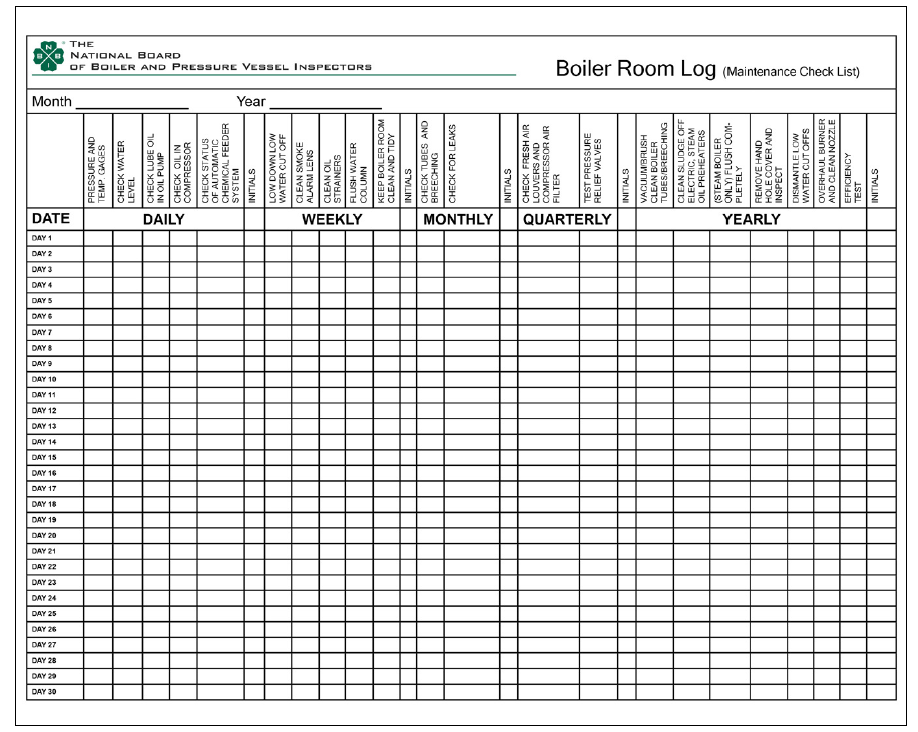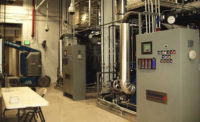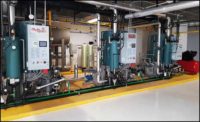Often overlooked in boiler operations is the establishment and enforcement of a procedure for keeping adequate boiler logs. The management of a facility that operates a boiler system bears the responsibility for implementing and maintaining such a log.
Data from reported violations consistently indicates that most of all reported boiler violations are attributable to just two causes: low-water cutoffs and operator error/poor maintenance. Proper keeping and analysis of boiler logs helps operators to focus on these problem areas and, therefore, reduce boiler accidents.
There are several people who are responsible for maintaining boiler logs, and each has a different role to play. The operator is responsible for taking boiler readings and assuring accuracy and initial analysis. The inspector is responsible for reviewing the boiler log, records of maintenance, and feedwater treatment. The inspector’s review ensures regular and adequate tests have been performed on the boiler and controls. The management is responsible for implementing the boiler log program and supervising its continuous completion. Management is also responsible for ensuring an analysis program is carried out.
All persons involved must make sure logs are retained in accordance with a facility’s policy. They must also perform analyses by examining the logs to determine trends and then act upon or recommend action in response to those trends. Repair or replacement of equipment, as indicated by operation or maintenance log indications, must be performed as needed.
Coverage
There are two types of boiler logs: one for daily operations and one for maintenance activities. These logs can be easily customized for each installation’s unique requirements.
Boiler operating logs help distinguish operating trends that can allow problems to be diagnosed and boiler and/or fuel-burning system maintenance to be scheduled before an emergency shutdown is necessary. For example, a steady rise in stack temperature at the same boiler load indicates dirty boiler firesides or waterside scale buildup. In either case, remedial action can be taken before it’s necessary to shut the unit down for cleaning.

Maintenance logs should include items recommended in the boiler and burner manufacturer’s operation systems, including details appropriate to the specific boiler system, and should be completed on a regular basis (e.g., daily, weekly, monthly, semiannually, or annually).
Boiler Operating Log Program
Instrument readings, as appropriate to the specific boiler system, need to be taken daily for low-pressure heating boilers and at least once per eight-hour shift for high-pressure boilers. These readings must be recorded in the boiler log.
It’s important the boiler log be kept in a consistent format for trends to be perceived and followed with preventive action. Standard forms are available for this purpose; however, the log may be more useful if the form is customized for the installation.
Sample Logs
A separate log sheet is required for each boiler in the facility. One option is having a log sheet that is good for one month (31 days) and provides for two sets of readings per day. It’s recommended that completed logs be three-hole punched and filed in a loose-leaf notebook for future analysis. Management should establish a reasonable period of time for log retention, consistent with the life expectancy of the unit.
Boiler log sheets should have provisions for recording weekly and monthly checks with the date of completion. A general comments section allows recording of significant events, such as the date of the annual boiler inspection, repairs conducted, parts replaced, etc. Other events, such as boiler malfunctions, should also be noted.
Logs for high-pressure boilers are similar but should provide for at least three readings (one per shift) per day. High-pressure logs normally require additional readings consistent with the system.
The most important concern is to keep the log complete, accurate, and updated regularly. Too often, logs are kept with identical readings for an entire month or with gaps in the readings. Management must stress the need for complete, accurate logs and explain the need for analysis and its benefits.
Maintenance Log Program
Maintenance items, as appropriate to the specific boiler system, need to be considered for implementation on a regular basis (e.g., daily, weekly, monthly, semiannually, or annually). A checklist of items should be incorporated into a maintenance log with provisions for checking off the item for the appropriate period. A separate log sheet is suggested for each period. The log sheets can be filed in a loose-leaf binder and should be retained as a permanent maintenance record.
The log sheets can be used as a handy check-off system when establishing a facility maintenance program. In all cases, the equipment manufacturer’s recommendations should be followed.
A well-thought-out operation and maintenance log program designed to address the requirements of the facility will reduce boiler accidents, downtime, and equipment loss. A properly carried out program will focus the attention of both management and operating personnel on the often-overlooked boiler plant, thereby addressing small problems before they become large ones.




